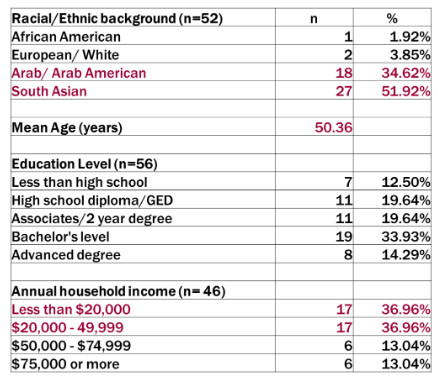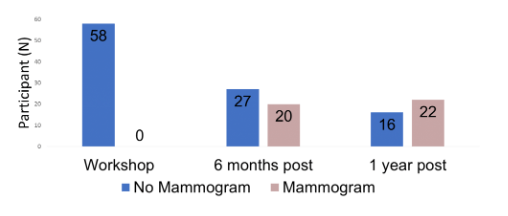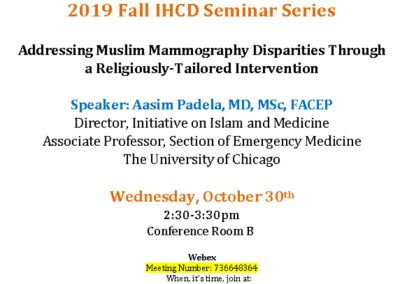Developing a Religiously-Tailored Mammography Intervention for American Muslims
Project Outputs
Academic Papers
- Changing Mammography-Related Beliefs Among American Muslim Women: Findings from a Religiously-Tailored Mosque-Based Intervention.
-
The Development and Validation of a Modesty Measure for Diverse Muslim Populations.
-
Adapting a religious health fatalism measure for use in Muslim populations.
-
Acceptability of Friday Sermons as a Modality for Health Promotion and Education.
Media Highlights
Replication Toolkit
Replication Guide
Community members who are interested in replicating these workshops in your mosque can use our Replication Toolkit as a guide to learn more about the study design and logistical plannings to coordinate the workshops.
Friday Sermons
We wanted to assess the acceptability and feasibility of using sermons for health promotion in American Muslim mosque communities by deploying a tailored sermon in two mosque communities. Our study demonstrates that theologically-framed health messaging is acceptable within sermons in American Muslim mosque communities and underscores the potential utility of mosque sermons for health education programs and for health behavior interventions in American mosques. Below are sample sermons delivered in our study.
Developing Religiously Tailored Intervention
The ‘3R Model’
Supported by:
Community Advisory Board
-
Fatema Mirza*
-
Nancy Romanchek*
-
Tabassum Haleem
-
Masood Iqbal
-
Luma Mahairi
-
Beenish Manzoor
-
MahRukh Mian
-
Zakiyah Moton
-
Lynn Salahi
-
Kifah Shukair
-
Lila Zegar
*Indicate members that were also Peer Educators













